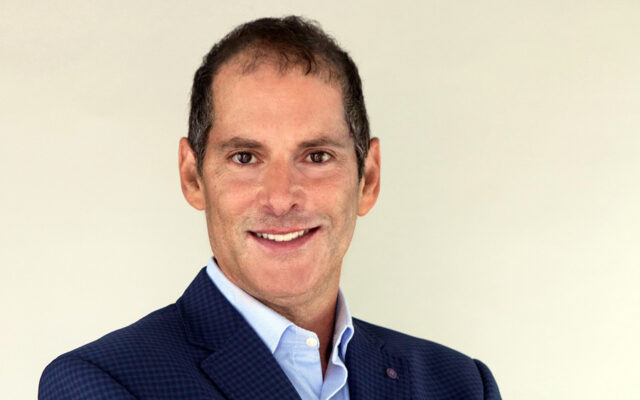Investment banks, funds of funds, endowments, foundations, consultants and other institutional investors have leaned on Randy Shain’s investigations of managers for more than three decades.
Shain has been an unapologetic advocate of increased transparency and hedge fund operational due diligence for a wider number of allocators. He often publicly focuses on the right questions investors should ask and why it mattered.
Here we pick up on the evergreen topic of operational due diligence. Before joining Hilton Global as chief operating officer in 2020, Shain was at Blue Heron Research Partners, a qualitative due diligence research firm. He is most well-known for co-founding BackTrack Reports, where he led discrete investigations of more than 8,500 hedge funds and 20,000-plus executives. He later sold the business in 2004 to First Advantage.
Barreto: You’ve been in the world of investigative due diligence for over three decades, what would you say has gotten easier over the years?
Shain: Thanks for making me feel older than I normally do, Susan. At the risk of sounding like that Thanksgiving uncle droning on about how difficult things were in the old days, I’d say that investigative research has profoundly changed for the better the more technology has improved. From being able to search one source for most educational credentials (as opposed to hoping a registrar’s office will answer a phone call) to searching more and more court records online, instead of sending a person to a dusty courthouse and hoping files are in some kind of order, technology is king. One caveat: technology has indeed made searches better and more efficient, but it is NOT a panacea. Often times, old school techniques must still be utilized to ensure completeness.
Barreto: We originally met when you were at BackTrack Reports. How does your work at Hilton Global differ from what you were doing in the 1990s?
Shain: Hilton Global has a number of specialties, whereas BackTrack focused exclusively on due diligence. This is only possible because our founder, Melissa Kelley-Hilton, has an extraordinary knowledge of the Citizenship by Investment (CBI) space that, combined with Kerry Ann Sullivan’s expertise in private equity and Jennifer Mannino’s background in litigation and fraud claims, allows us to analyze our targets through a different lens.
Barreto: Today, you are investigating alternative investments broadly. Has transparency improved with greater online access to information?
Shain: If you’re asking me whether alternative managers are more transparent now that so much information is available, I’d defer to our clients, who are operational due diligence professionals, and thus would be better served to answer. That said, I’d posit that the short answer is yes, with a twist: managers are incredibly familiar with the due diligence process these days, and seldom object to providing consent forms or other information necessary to ensure the process runs smoothly. This familiarity and the acceptance of due diligence, combined with technology, has improved transparency in my view.
Barreto: How has technology changed things?
Shain: Investigative research has profoundly changed for the better the more technology has improved. A major benefit to clients of improved technology comes from OSINT (open-source intelligence) searches. Using OSINT, we routinely find things like cached versions of LinkedIn profiles (in which job titles are different than those presented on the current profile, for example) or old news stories corroborating work history or providing other useful nuggets of information. This information is often not found via other means. Moreover, the ability to comb through thousands of tweets, along with Facebook and Instagram posts, is hugely important and is not practical to do “by hand.”
Barreto: What key questions should investors ask when doing their homework on an alternative investment manager?
Shain: The single best question I recommend all investors ask is “have you ever been involved in any litigation, whether as a plaintiff or as a defendant (to include civil, criminal or bankruptcy)? The key is to omit words like “material” or any other language that unnecessarily limits the answer and also provides an “out” due to a claimed misunderstanding. Investor clients who do ask such a question learn how forthright a manager is. This can be a crucial component of the mosaic of data investors are collecting, and is not available to those investors who aren’t asking.
Barreto: Who are your key clients?
Shain: Our key clients are funds of funds, endowments, foundations, pension funds, Sovereign Wealth Funds, consultants and, increasingly, private equity funds.
Barreto: Are investors’ needs changing when it comes to due diligence? If so, how?
Shain: Faster faster faster. Investors, like everyone else, want information fast. Having said that, savvy investors (as our clients are) realize that thoroughness takes a bit of time, and that sacrificing this for speed is a fool’s errand.
Barreto: Do you keep a database of your findings, like you did at BackTrack? Are there any common themes you see emerging?
Shain: Yes and yes. The most common theme that has remained true over all these years is that investors are looking for a pattern of behavior. A 50 year-old manager with a DUI at age 20 might not elicit much concern; a 50 year-old manager with three DUIs, the last occurring a year ago, however, will likely raise some alarms. Another theme we see relates to this in that individuals with items clients might consider to be issues seldom have only one of these. For example, the manager who’s had a six-figure tax lien filed against them is often the manager who also has been involved in multiple lawsuits, misrepresented his work history, and has a driving record replete with various violations. None of this on its own might cause an investor to reconsider, but in concert, these data points might lead to some further conversations before comfort is achieved.




